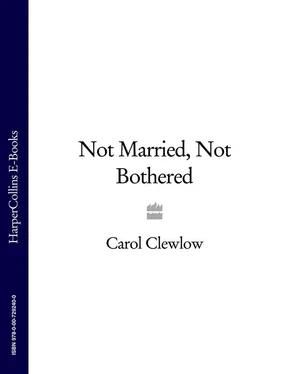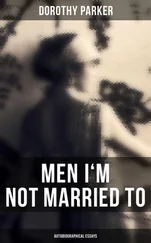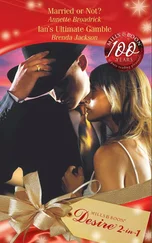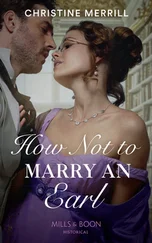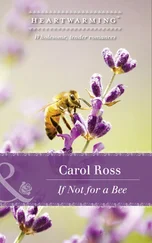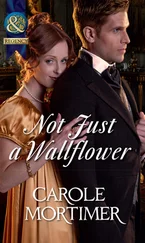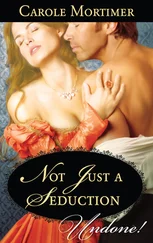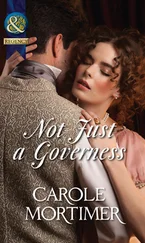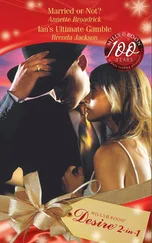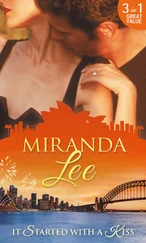1 ...7 8 9 11 12 13 ...17 Divorce will always be something that happens to other people.
You’ll never have to:
divide up: the dishwasher
the washing machine
the fridge freezer
separate out: the duvet covers
the cutlery and crockery
the garden implements
sort through: the holiday snaps
the DVDs
the CDs
the videos
You’ll never have to fight for that complete set of Jeffrey Archer.
It’s amazing how many Ds you can find to go with divorce.
‘Discord … dissent … dismemberment …’
‘Dissection … disruption … um … dissolution …’ Nathan, with his lips drawn back in the eternal faintly mocking smile as we played the game together.
That was the night he told me he was divorced; Nathan, like an old iceberg, only a small jagged part of him poking up out of the water.
‘I didn’t know.’
‘There was no reason why you should. I hadn’t told you.’ The way he leant back calmly in the plastic-strung chair, a hand curved around his chin, his face all white and bright from the street stall’s fizzing gaslamp dangling above us.
‘So who was she? How did you meet?’
But his lips were clamped closed now and the shutter had dropped down over his face. Nathan. The Man in the Iron Mask.
‘It doesn’t matter, Riley. It was a long time ago.’ Buttoned- up Nathan. Tight-lipped Nathan. Nathan, with what seemed to be a loathing of sharing this tittle-tattle about himself, as if he believed it was frivolous, idle, unnecessary gossip. ‘It’s of no consequence.’
Nathan, with this formal, old-fashioned way of talking. Drawing his tentacles in with it, covering himself like one of those sea anemones. And all this the reason why it’s so hard to reconstruct him now, making me realise how very little in the end in those four months together in Bangkok I really got to know him. Nathan with his It doesn’t matter … and It’s of no consequence . And It’s nothing to do with us, Riley .
I said to him that night, ‘My parents should have divorced,’ perhaps playing for his sympathy. There was concern anyway, a warmth in his eye when he looked up.
‘I’m sorry.’
‘Are you? Why?’
‘Because it’s not good. To have unhappy parents.’
It was the first time I’d heard that, I remember. Almost thirty years ago when such things were not said so easily. When people were more stoical .
‘Isn’t it. Don’t lots of people have unhappy parents?’
‘Some do, yes.’
‘And you?’
‘Maybe. Yes. But they were already middle-aged when I was born.’ Again that look, his fork suspended in the air as if he was considering it. ‘I guess by the time I got old enough to really look at them, they were old too. Too old and too traditional to show it.’
I don’t know why our parents didn’t divorce when I come to think about it now. God knows, my mother threatened it often enough.
‘I’m off. You see. I don’t need to be stuck here with you.’
‘Good. I couldn’t be happier.’
‘The girls’ll come with me. You know that, don’t you?’
‘Not a chance.’
‘Did he really believe that?’ I said to Cass. ‘That he could take us?’
‘I don’t know,’ she said. ‘But I guess, in the end, that’s what kept them together.’
All this was in a different age, like I say. A time, I guess, when people did stay together. Unlike now, when forty per cent of couples in this country divorce, fifty per cent in America. Of those people in this country who do weather the storm, eighty per cent say that they’ve given splitting- up serious consideration. Maybe it’s the thought of all that long division that stops them.
In the trauma stakes, divorce ranks second only to death and even this is up for debate. A recent survey carried out by Norwich Union found that forty-six per cent of people who’d divorced said it was more stressful than bereavement. A full forty per cent said they were determined not to marry again because of it.
Death, divorce and moving house. The great triumvirate of trauma:
‘Although as far as I’m concerned, one and two are definitely overstated.’ *
You could have knocked me over with the proverbial feather when Fleur said that, wiping an exasperated hand over her forehead. This was mainly because it was the first time in our lives I’d heard her say anything remotely witty. A precursor of things to come, I couldn’t help thinking, and almost certainly, I realised afterwards, a direct result of the change in her circumstances.
It was a couple of days after Fergie had heard about his early retirement, and I was returning from the Town Council when I came upon Fleur haranguing the two removal men outside the new block of flats beside the abbey. They were carrying a white sofa up the path, which if I’d looked carefully I would have recognised. I didn’t, though, because I thought she must just be helping some friend move house. But then she caught sight of me and waved me over furiously.
‘I told them clearly . Kitchen stuff last .’ She flung a hand distractedly up to her Liberty bandanna. ‘Now the blasted tea bags are in some tea chest at the back of the wagon.’
‘There’s a corner shop over there,’ I said, pointing towards it. She put a hand up to her forehead, shading her eyes like some newcomer to the colonies gazing over a clearing in the jungle.
‘A corner shop?’ she said as if I’d used a foreign phrase she’d need translating.
‘Best let me go,’ I said. ‘I speak the language.’
Later, sitting at the kitchen table drinking mugs of tea (she’d made the smaller of two removal men wriggle through to the offending chests to find the mugs plus the kettle), she fixed me with a severe eye.
‘I thought you’d have heard.’
‘No.’ Because I hadn’t.
‘Really?’ A satirical, and I must say entirely warranted expression shot her eyebrows up into her hairline.
‘Auntie Barbara is slipping.’
Time now I think for you to meet The Other Side Of The Family.
Imagine.
Two households, both alike in dignity …
Not.
It’s a simply tale, corny too, but none the less poignant for that.
Once upon a time there were two sisters.
One married a humble motor mechanic, the other the son of our town’s only major employer.
If you’d opened up the glossy magazines in the fifties you’d have seen full-page ads for Frasers Fine Leathers, the gloves looking more like silk than skin, laid out elegantly like the spokes of a wheel. When the sixties arrived, and no one but the Queen wore gloves any more, Frasers was forced to diversify, which it did and highly successfully. The proof of the pudding is still there in the foyer, a glimpse of the past: John Lennon wearing that famous leather cap, and Patti Boyd, all gap-toothed smile in a Fraser leather skirt the width of a pelmet.
Those were the long-gone glory days of Frasers. Six hundred people worked there then, now it’s down to no more than a hundred, the skirts and bags and gloves that still bear the Fraser name turned out in the sweatshops of Eastern Europe and Asia, a boon for its sales manager, a.k.a. my Cousin Royston, younger brother to Fleur, who before Carlotta took him in hand liked to take full advantage in recreational terms of visiting suppliers.
I was still at school and Royston had yet to be even a gleam in his parents’ eyes when I had a Saturday job at Frasers. I worked in the shop, which was run by Miss Eames, a serious spinster who wore a net over her hair, which she’d blue-rinsed so many times it had turned a glorious funky purple.
The shop was just off the foyer then, busy enough to cover two floors and connected by a narrow curving staircase where Cousin Freddy, elder brother to Fleur, caught me one Saturday and tried to stick his tongue down my throat in an effort to widen his sexual experience. I like to remember this thirty years on, watching him tapping his pinky finger against his wine glass, and sticking out his Toad of Toad Hall chest and making one of his pompous head-of-the-firm little speeches at family parties.
Читать дальше
